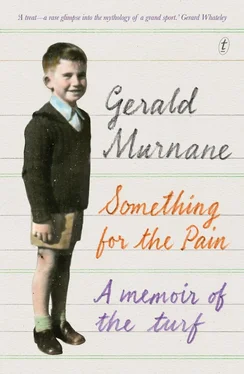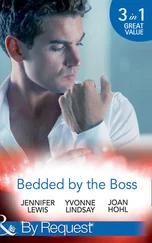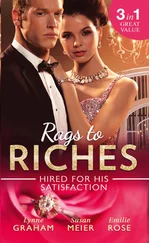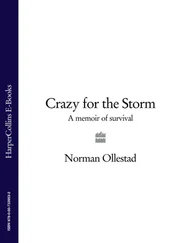I know nothing of the craft of writing scripts for film or live theatre, but I soon understood that the woman hunched over her form guide was a foil to the main characters. While they were falling in or out of love or forming or breaking down alliances, she was utterly removed from their concerns. She was a marginal character, but she came into her own in a brief scene towards the end. By then, the tensions between the leading characters would have been palpable for a discerning viewer such as my wife. I would have lost the plot long before — literally. The guests were at breakfast, and some sort of confrontation, resolution, denouement, whatever seemed about to take place. But the tension was briefly relieved, as it is sometimes relieved in a play by Shakespeare when a pair of yokels score points off one another before the hero and his antagonist confront each other in the final scene. Just before the climax in the breakfast room, the student of form guides got up to leave — for the nearest race meeting, presumably. As she was leaving, one of the main characters detained her for a moment, perhaps offended by her detachment from the others and their concerns. He said something to her along the lines of ‘Could you not say something kind to Cynthia in her time of turmoil?’ or ‘Surely you’ve sensed this morning the burden that Ralph has to bear?’ My plain-faced heroine, for that’s what she became for me as soon as she had delivered her reply, waved her form guides in the face of her questioner and said words to the effect of, ‘Give me horses rather than people any day. Horses are so much more predictable!’
Many times, as a young man, I could have wished for no better way of life than was had by the woman punter in Rattigan’s play. I could not imagine, perhaps, how I might be freed from the need to work for a living, but I could readily imagine myself doing without the distractions of a wife and family. In 1957, one of the things that woke me out of my brief daydream of becoming a priest was my realising that a feeling of closeness to a mental image of God would never sustain me through a lifetime as a celibate, and yet I was often confident during the next few years that I could do without a girlfriend or a wife if I was able to devote myself wholly to racing. I sometimes tried to weigh up the matter. I would ask myself what was the worst possible experience I could have as a bachelor-racegoer. My most common answer would be that I could think of nothing worse than arriving home after a day of heavy losses — arriving home to an empty flat and having to prepare some sort of meal. But then I would argue that the misery to be endured in such a situation was by no means worse and probably rather less than the misery of learning that a young woman I had been interested in for some time was not in the least interested in me.
The horsey woman in Rattigan’s play had not smiled when declaring that she found it easier to forecast races than human behaviour. Nor am I smiling when I write that I got from horse racing during the first twenty-five years of my life more than I ever got from any friendship or courtship. My wife and I were together for a few months less than forty-five years, and I could never doubt today that each of us had a better life than if we had remained single, which had been something of a possibility for both of us when we took up together in our late twenties. Even so, there were weeks and months during those forty-five years when I could not have brought myself to write a sentence such as the previous.
During most of the countless hours that I’ve spent on racecourses, I’ve been alone. And yet I’ve never once felt awkwardly or conspicuously alone at the races as I used to feel at dances or parties or holiday places. If, as a young man, I found myself in the company of an attractive young woman in a place other than a racecourse, I would be at first distracted and afterwards annoyed that I was prevented by a thousand obstacles from knowing more about her. If I came up against the same young woman on a racecourse, I would barely glance at her before getting on with my business and would feel no less a man for having behaved thus.
From my earliest years as a racegoer, there were numerous women among the spectators but few among the participants. For many years, all trainers and jockeys were men, as were most owners. I don’t even recall seeing female strappers for many years. Bookmakers were all men and so, too, were most of the throng in the betting ring. No solitary male could ever feel out of place on a racecourse. The men around him might have been lechers or satyrs on other days, but on race days they had the appearance of an order of celibate friars or monks following a religious rule or a motto like that of St Benedict: Work and pray!
There were also, of course, genuine bachelors, especially among my extended family or other Catholic families of their acquaintance. I was often at the races during my early years with my bachelor-uncle Louis. We sometimes met up with the Goonan brothers, Louis’s cousins on his father’s side. The Goonans were a family in which the majority of the siblings never married. Dan and Louis Goonan raced horses under the colours Pink, gold cap. My father warned me against the Goonans. He said they were mean and narrow-minded. I strongly suspect that they once turned my father down for a loan, which is what anyone in his right mind would have done. The Goonans were stingy, and I disliked them for it, but I admired their stern, celibate way of life.
On the day before the two-day summer meeting at Warrnambool in, I think, the late 1950s, a car travelling from Melbourne to Warrnambool was struck by a train at one of the level crossings on the Princes Highway. The two people in the car were killed. In those days, such accidents were by no means uncommon. Level crossings, even on the busy highway, were marked only with painted wooden posts or with white markings on the road. I might mention here an accident that happened once near Allansford, at Grauers Crossing, one of the most dangerous. A travelling salesman driving alone was struck by a race train on its way back to Melbourne after a Warrnambool meeting. Perhaps I’ve written sometimes in this book as though racegoers are a mostly virtuous lot or that racing brings out the best in people. If so, then I’ll do well to report here that the salesman’s suitcases full of samples and supplies, whatever they were, were flung along the railway line after the crash. The train, of course, had stopped. The driver of the car died soon afterwards at the scene, but before he died he pleaded in vain with the dozens of home-going punters who had jumped down from the carriages and were picking up and pocketing the scattered goods.
The first of the two accidents mentioned above was reported in the Warrnambool Standard on the following day, which was the first day of the two-day race meeting. The two persons killed had been a man and a woman, both in their fifties. The man was named Rupert Taylor. I’ve forgotten his middle name. He was described as being a racehorse trainer from Dover Street, Flemington.
Rupe Taylor, as I once heard my father call him, was one of the numerous small-time trainers who struggled then and still struggle today to earn a living from racing. I can never recall any of Taylor’s small team winning, although he must surely have won some country races during the time while I was aware of him. I found his colours distinctive and pleasing. They were Orange, red hoops and cap, and I would have liked to commend whoever had designed them. I had never seen Taylor, but when I read of his death I formed an image of a smallish grey-haired man. He was smallish because, like so many trainers then and now, he had formerly been a jockey. He was grey-haired, of course, because he was in his fifties, which for someone of my age at the time seemed old. Taylor had two horses engaged at the Warrnambool meeting. Many another small-time trainer might have towed his horses in a two-horse float but Rupe’s horses got safely to Warrnambool, I gather, because they were sent in the care of a horse-transport company. I can’t recall whether the horses were scratched or whether, as sometimes happens in such a situation, another trainer saddled them up or was even asked by the owner to take them into his stable.
Читать дальше












